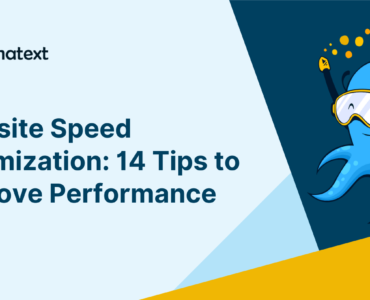To improve SEO for B2B businesses in digital marketing, focus on creating high-quality, relevant content and optimizing it for relevant keywords. For B2B businesses, effective SEO strategies are crucial for enhancing online visibility and generating quality leads.
In the digital marketing landscape, B2B companies can benefit from implementing targeted keyword research, developing informative content tailored to their audience’s needs, and optimizing their website structure and navigation for improved user experience. Additionally, incorporating link building strategies and leveraging social media platforms can further amplify the reach and influence of B2B businesses.
By employing these SEO tactics, B2B companies can strengthen their digital presence and increase their chances of connecting with potential clients and valuable business partners.

Credit: www.linkedin.com
Why Seo Is Crucial For B2b Businesses
SEO plays a pivotal role in the digital marketing strategy of B2B businesses. It is essential for enhancing online visibility, reaching the target audience effectively, and ultimately driving business growth.
The Importance Of Online Visibility
Online visibility is crucial for any business, but it holds particular significance for B2B enterprises. When prospective clients search for products or services, having a strong online presence can positively impact their decision to engage with your business.
Reaching Target Audience Effectively
With SEO strategies in place, B2B businesses can tailor their content to target specific audiences based on their industry, job title, or specific needs. This enhances the ability to connect with the right prospects and improve lead generation.
Understanding B2b Seo
B2B SEO is a crucial aspect of digital marketing for businesses that sell products or services to other businesses. Understanding B2B SEO involves strategies tailored to reach the right audience, generate quality leads, and drive conversions in the B2B space.
Key Differences From B2c Seo
B2B SEO differs from B2C SEO in several key ways. Firstly, the B2B audience is more niche and specialized, requiring a more targeted approach. Content and keywords are often focused on industry-specific language and technical terms rather than consumer-oriented phrases. B2B purchases tend to involve longer sales cycles and multiple decision-makers, influencing the content and SEO strategies required.
Importance Of Keyword Research
Keyword research is a fundamental element of B2B SEO as it helps identify the language and terms used within the industry, allowing businesses to tailor their content to attract relevant prospects. Ensuring each H3 heading adheres to HTML syntax is crucial for on-page optimization, helping search engines understand the key topics and themes of the page.
Creating An Seo Strategy For B2b Businesses
Develop an effective SEO strategy specifically designed for B2B businesses in the digital marketing realm. Optimize your website, create high-quality content, and target relevant keywords to increase visibility and drive traffic to your B2B company.
Developing an effective SEO strategy is essential for B2B businesses in the ever-evolving world of digital marketing. It allows them to gain visibility, attract potential customers, and ultimately generate more leads and sales. In this blog post, we will discuss three key aspects of creating a successful SEO strategy for B2B businesses – setting clear goals and objectives, optimizing website structure and content, and building quality backlinks.
Setting Clear Goals And Objectives
Before diving into the complex world of SEO, it is crucial to set clear goals and objectives that align with your B2B business’s overall marketing objectives. This will allow you to focus your efforts and measure the success of your SEO strategy effectively.
Some common goals for B2B businesses include increasing website traffic, boosting organic search rankings, improving lead generation, and enhancing brand visibility. By establishing specific, measurable, attainable, relevant, and time-bound (SMART) goals, you can track your progress and adjust your SEO tactics as needed.
Optimizing Website Structure And Content
Optimizing your B2B website’s structure and content is crucial to improving its search engine visibility and user experience. Start by conducting a thorough website audit to identify any technical issues or areas for improvement.
Next, focus on optimizing your website’s on-page elements, including meta tags, headings, image alt texts, and URLs. By incorporating relevant keywords naturally into these elements, you can help search engines understand your content and rank it higher for relevant search queries.
Additionally, pay attention to creating high-quality, engaging content that addresses your target audience’s pain points and provides valuable insights. Use a mix of formats such as blog posts, case studies, white papers, and videos to cater to different preferences and improve your website’s overall visibility.
Building Quality Backlinks
Backlinks are an essential factor in search engine algorithms and play a crucial role in establishing your B2B website’s authority and credibility. However, not all backlinks are created equal – quality matters more than quantity.
Focusing on building high-quality backlinks from authoritative websites within your niche can significantly improve your search engine rankings. Engage in guest blogging, content partnerships, and influencer outreach to generate relevant, authoritative backlinks that showcase your expertise and trustworthiness.
Additionally, ensure that each backlink is accompanied by descriptive anchor text that includes relevant keywords. This will further enhance your website’s visibility and improve its chances of ranking higher in search engine results.
In conclusion, creating a robust SEO strategy for your B2B business involves setting clear goals and objectives, optimizing your website’s structure and content, and building high-quality backlinks. By prioritizing these aspects and staying up-to-date with SEO best practices, you can drive organic traffic, attract potential customers, and ultimately grow your B2B business online.

Credit: www.bigcommerce.com
Optimizing Website For B2b Seo
Enhancing a website for B2B SEO involves targeted keyword research, creating high-quality content, and optimizing meta tags. Implementing SEO strategies tailored for B2B businesses in digital marketing can improve search engine ranking and drive qualified traffic to the site, ultimately increasing lead generation and conversions.
Focusing On User Experience
When it comes to optimizing your B2B website for SEO, one of the most critical factors to consider is user experience. Your website should be user-friendly, intuitive, and provide a seamless browsing experience.
Why is user experience important?
A user-friendly website not only encourages visitors to stay longer but also reduces bounce rates. This signals search engines that your website is relevant and valuable to your target audience, boosting your search rankings. Remember, positive user experience leads to higher engagement and better conversions.
Utilizing Relevant Keywords
A key aspect of SEO for B2B businesses is utilizing relevant keywords throughout your website. Keywords are the phrases that your potential customers are likely to search for when looking for products or services in your industry. By incorporating these keywords strategically, you can increase your website’s visibility and attract the right audience.
Where should you use keywords?
To optimize your website for B2B SEO, you should include relevant keywords in the following areas:
- Page titles and headings
- URL structure
- Meta descriptions
- Image alt tags
- Body text
Remember, while it’s vital to use keywords, avoid keyword stuffing. Your content should be natural, engaging, and provide value to your readers, rather than solely focusing on search engine rankings.
Optimizing Meta Tags And Headers
Meta tags and headers play a crucial role in B2B SEO. These HTML elements provide information to search engine crawlers about your website’s content and establish relevance to specific searches. By optimizing your meta tags and headers, you can improve your website’s visibility in search engine results.
What should you remember when optimizing meta tags and headers?
- Ensure each page has a unique and descriptive meta title and description, including relevant keywords.
- Use H1 heading tags for page titles and H2 tags for subheadings.
- Make sure each H3 heading adheres to HTML syntax, providing clear and concise information about the content that follows.
In Conclusion
Optimizing your website for B2B SEO requires focusing on user experience, utilizing relevant keywords strategically, and optimizing meta tags and headers. By following these practices, you can enhance your website’s visibility, attract your target audience, and improve your overall digital marketing strategy.
Measuring And Tracking Seo Success
To measure and track SEO success for B2B businesses in digital marketing, key performance indicators like organic traffic, keyword rankings, and conversion rates should be regularly monitored. Analyzing website analytics and engaging in regular SEO audits are vital for identifying trends, optimizing strategies, and achieving long-term success.
Key Metrics To Monitor
To measure and track the success of your SEO strategies for B2B businesses in digital marketing, it is crucial to focus on key metrics that provide insights into the effectiveness of your efforts. Here are some important metrics to monitor: 1. Organic traffic: Monitor the number of visitors coming to your website through organic search results. This metric indicates the visibility of your website on search engines. 2. Keyword rankings: Track the positions of your target keywords in search engine results pages (SERPs). Improvements in keyword rankings indicate that your SEO efforts are paying off and driving better visibility. 3. Conversion rate: Keep an eye on the percentage of website visitors who take a desired action, such as making a purchase, submitting a contact form, or subscribing to a newsletter. A higher conversion rate indicates the relevance and effectiveness of your website content. 4. Bounce rate: Aim for a low bounce rate, which indicates the percentage of visitors who leave your website after viewing only one page. A high bounce rate may suggest that visitors are not finding what they’re looking for, highlighting the need for improvement in content or user experience. 5. Backlinks: Track the number and quality of external websites linking back to your site. Backlinks are an important factor in search engine rankings and can significantly impact your website’s authority and visibility.Using Analytics Tools Effectively
To measure these key metrics accurately and gain valuable insights, it is essential to utilize analytics tools effectively. Here are some strategies to make the most of these tools: – Set up Google Analytics or any other analytics tool on your website to track and analyze important metrics. This will help you understand your audience, identify trends, and measure the impact of your SEO efforts. – Create custom reports tailored to your business goals. Focus on the key metrics mentioned earlier and set up automated reports to receive regularly updated data. – Monitor the performance of individual landing pages. By analyzing page-specific metrics like organic traffic, bounce rate, and conversion rate, you can identify areas for improvement and optimize your content accordingly. – Utilize the power of data visualization tools such as charts and graphs to present complex information in an easily understandable format. This will enable you to quickly identify patterns and make data-driven decisions. – Regularly analyze and compare your SEO metrics over time. By monitoring trends, you can identify which strategies are working and make adjustments to optimize your results. Using analytics tools effectively will help you make informed decisions, improve your SEO strategies, and ultimately drive more targeted traffic and conversions to your B2B website.
Credit: fieldcomplete.com
Frequently Asked Questions For Seo Strategies For B2b Businesses In Digital Marketing
What Is The Seo Content Strategy For B2b?
The SEO content strategy for B2B involves optimizing content with relevant keywords, creating high-quality and valuable content, securing backlinks from authoritative websites, optimizing website structure and technical aspects, and promoting content through various channels. It aims to improve search engine rankings and drive targeted traffic to B2B websites.
How To Use Seo For B2b Marketing?
To use SEO for B2B marketing, focus on optimizing your website and content. Conduct keyword research to find relevant terms, and incorporate them naturally into your titles, headings, URLs, and content. Build high-quality backlinks to improve your site’s authority and visibility.
Regularly update and promote your content to attract and engage your target audience.
How Seo Is Different For B2b Companies?
SEO for B2B companies differs due to the target audience being other businesses. Keywords and content should focus on industry-specific terms to attract relevant leads. Additionally, B2B SEO involves building backlinks from authoritative industry websites and optimizing website speed and usability for a seamless user experience.
What Is B2b Digital Marketing Strategies?
B2B digital marketing strategies are tactics used to promote and sell products or services to other businesses online. By utilizing various digital channels, such as social media and email marketing, companies can reach their target audience, generate leads, and increase sales.
Conclusion
To succeed in the competitive world of B2B digital marketing, implementing effective SEO strategies is crucial. By conducting thorough keyword research, optimizing on-page elements, creating valuable content, building quality backlinks, and staying up-to-date with algorithm changes, B2B businesses can enhance their online presence and drive targeted traffic to their websites.
Remember, SEO is an ongoing process that requires constant monitoring and adaptation. Stay proactive, stay informed, and watch your B2B business thrive in the digital landscape.
Related Posts
Recent Posts
- Optimizing Images for SEO and Page Speed: Boost Your Website’s Performance!
- Seo for Local Businesses Step-By-Step Guide: Boost Your Online Success Today!
- The Role of Content Clusters in Modern SEO: Boost Your Rankings
- Supercharge Your SEO Success with High-Quality Backlinks
- Impact of User Experience on SEO Rankings: Boost Your Website’s Performance
Recent Comments
Archives
Categories
Categories
- Blog(40)
- Local SEO(1)
- On-Page SEO(1)
- SEO(7)
- SEO Optimization(1)





